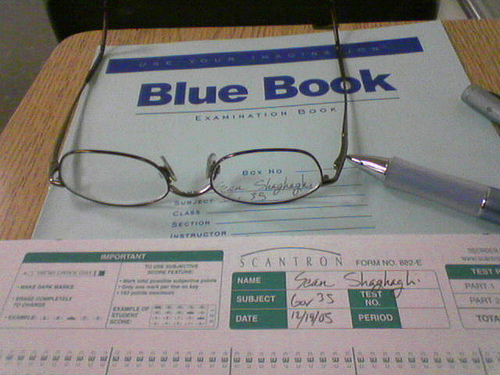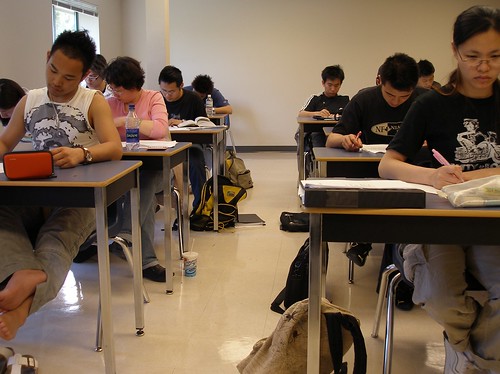
Final exams: the season of caffeine-fueled study sessions, color-coded notes and a lingering sense of dread. It’s easy to feel overwhelmed, but what if I told you Wicked: Part One offers some surprisingly relatable lessons to help you power through? Just like Elphaba, Galinda/Glinda and the gang at Shiz University, we’ve all got challenges to face and goals to crush. Here’s how you can use their experiences to ace your finals with a little strategy, resilience and maybe even some sparkle.
1. Perception Isn’t Reality: Don’t Let Stress Define You
Elphaba spends much of Wicked: Part One labeled as something she’s not. Sound familiar? Finals can make you feel like you’re in over your head, but that’s just stress talking. The reality? You’re more prepared than you think—you just need a game plan to prove it to yourself.
What to do: Break your study load into bite-sized pieces. Pick one chapter, one concept or even one page to tackle at a time. Small wins build momentum, and before you know it, you’ll see real progress.
2. Teamwork Makes the Dream Work
Glinda’s rise to popularity doesn’t happen in a vacuum. She’s got her squad—Pfannee and ShenShen—cheering her on (even if they’re mostly along for the social perks). Finals are no different. Studying with friends can keep you accountable, help you understand tricky concepts and make the whole experience less miserable.
What to do: Set up a study group and divide topics so everyone leads on something. Not into groups? Even just quizzing a friend or explaining a concept out loud can work wonders for retention.
3. Play to Your Strengths
Elphaba doesn’t try to be Glinda (and vice versa). They figure out what works for them and lean into it. Your study routine should do the same. If mind maps or flashcards have always worked for you, stick with them. If you learn best by teaching others, grab a whiteboard and start explaining concepts like you’re running the class.
What to do: Reflect on what’s worked for you before. Now’s not the time to experiment with new methods—focus on what helps you feel confident and prepared. (Try something new early next semester.)
4. Find Your Balance: Focus First, Fun Second
Pfannee and ShenShen might not have the deepest contributions, but they’re a reminder that a little fun keeps things light. Finals prep shouldn’t be all work and no play, but it’s also easy to let breaks turn into full-on Netflix binges. Strike a balance.
What to do: Try the Pomodoro Technique—25 minutes of focus, followed by a 5-minute break. After four cycles, reward yourself with a longer break. It’s productivity and permission to chill.
5. Channel Elphaba’s Resilience
Let’s face it: things don’t exactly go Elphaba’s way in Wicked: Part One. But she doesn’t give up. Even when the Wizard disappoints her or Glinda’s support feels conditional, she keeps pushing forward. Finals season can feel like one of those uphill battles, but resilience is what gets you through.
What to do: If you hit a wall—whether it’s a concept you don’t understand or just general burnout—step back, breathe and move on to something else. Come back later with fresh eyes. Progress over perfection is the goal.
6. Turn Notes into a Story
The magic of Wicked: Part One lies in the way it reimagines a familiar tale. You can do the same with your study material. Instead of staring blankly at pages of notes, try organizing them into a narrative that makes sense to you.
What to do: Pretend you’re explaining your material to someone else. Use visuals, create connections, or even write out mini summaries. The more your brain sees the “big picture,” the better you’ll recall details during the test.
Finals Are Your Yellow Brick Road
Finals may not feel as glamorous as heading to the Emerald City, but the effort you put in now sets you up for success down the road. Whether you’re channeling Elphaba’s grit, Glinda’s charm, or even Pfannee and ShenShen’s occasional lightness, remember this: you’ve got everything you need to make it through. Break things down, lean on your strengths and don’t forget to take care of yourself along the way. You’ve got this—now go defy gravity and crush your exams!
What other final exam-studying tips do you have to share?








